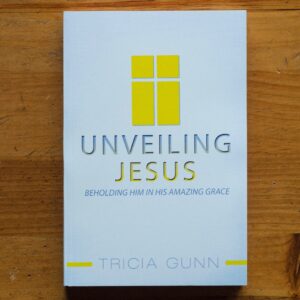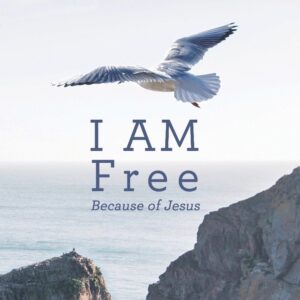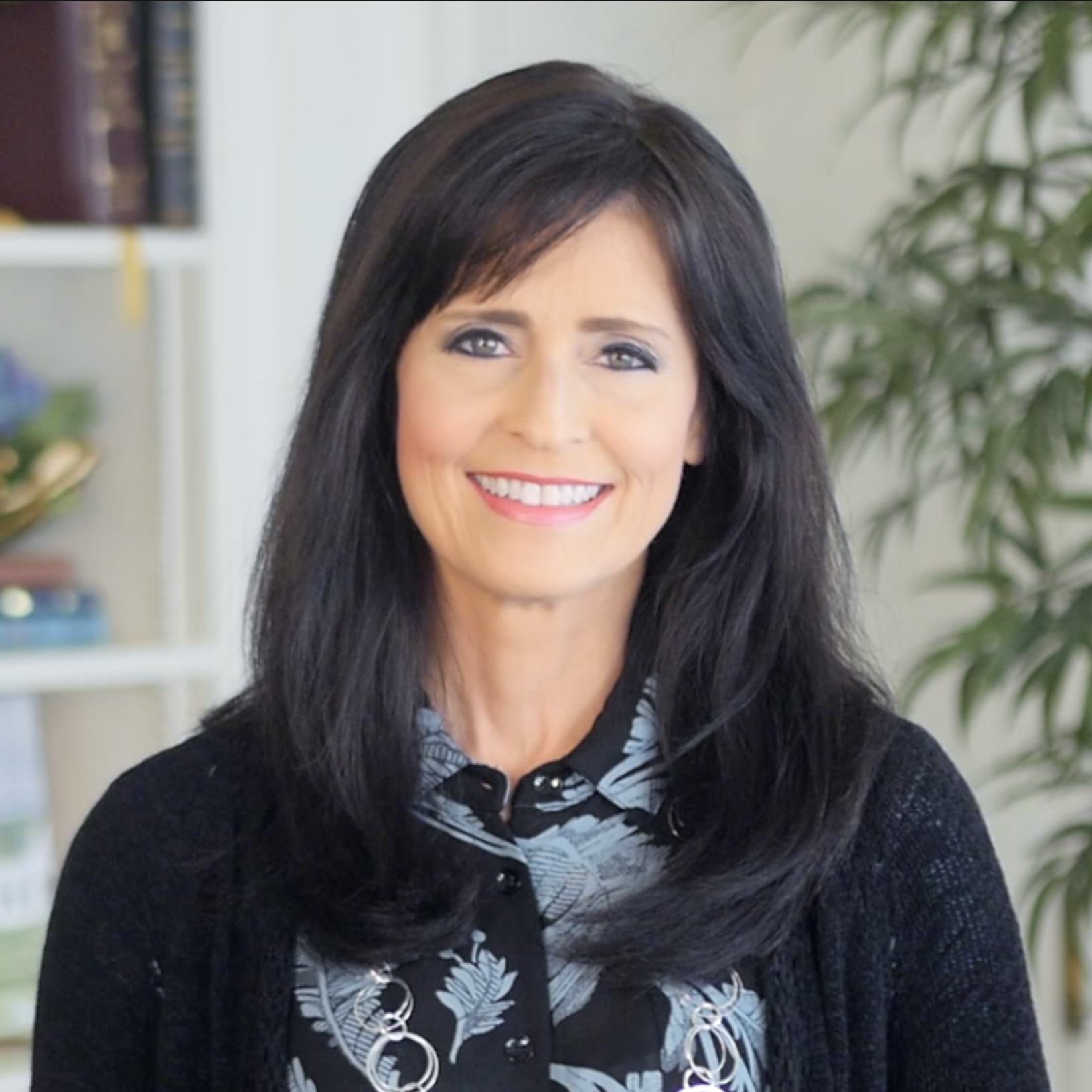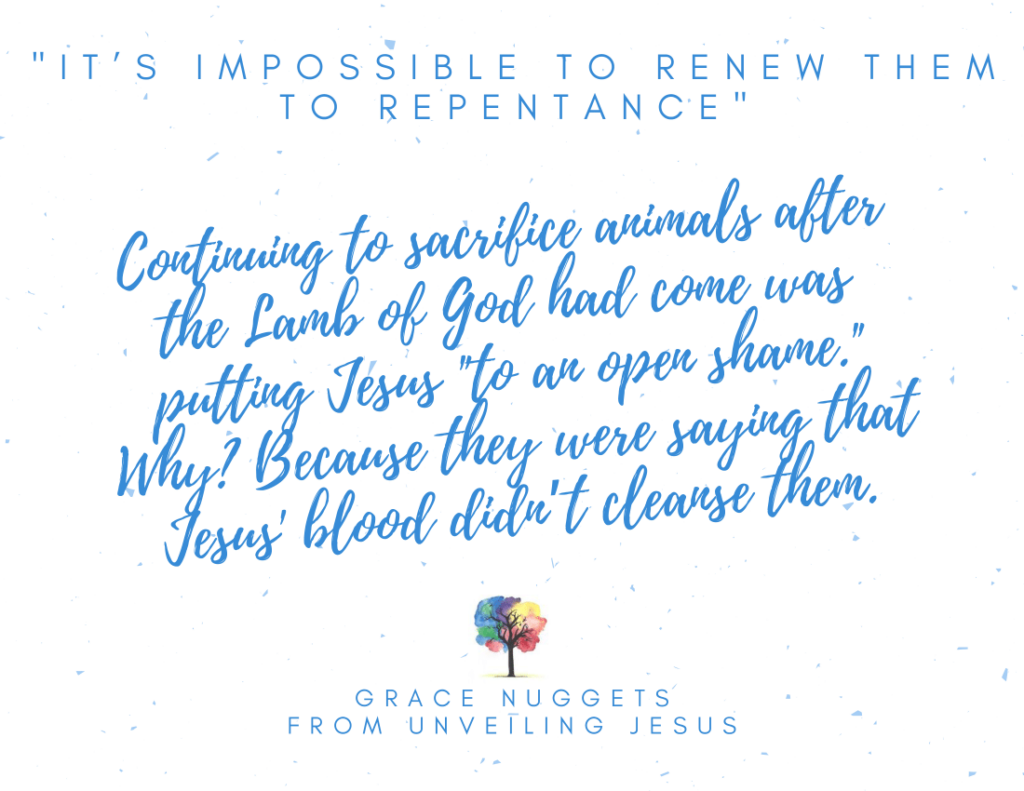
In Hebrews chapter 6, there is a passage that has been misunderstood by many in the church bringing great uncertainty concerning the eternal righteousness that we have in Christ. Context is very important in interpreting the meaning of scriptures. With our context, confusion will cause fear, and fear will keep us from walking in the freedom and intimacy with the Lord that God wants for us.
In the book of Hebrews, the writer contrasts the sure hope that we have in Jesus as the final offering with impossibility of the Old Covenant sacrifices to save us. At the time of the writing of the book of Hebrews, many of these Jews were still sacrificing animals on the altar to atone for sins. This practice among Jews who had rejected Jesus as the Messiah went on for some forty years after the resurrection until the temple was destroyed in 70 AD.1 Can you imagine sacrificing animals when the true Lamb of God had come?!
The writer is pleading with those who were on the brink of receiving Jesus as the final sacrifice. He begs them not to turn back.
“For it is impossible for those who were once enlightened, and have tasted the heavenly gift, and have become partakers of the Holy Spirit, and have tasted the good word of God and the powers of the age to come, if they fall away, to renew them again to repentance, since they crucify again for themselves the Son of God, and put Him to an open shame.” (Hebrews 6:4-6)2
They had been enlightened, tasted of the heavenly gift, had partaken of the Holy Spirit, and tasted of the good word, but had not been born again. The disciples before the cross were in this category and had experience all of those things. None of them were born again because the blood had not been shed. Old Testament believers looked forward to what God would someday do, and believers today look back at what Christ has already done. God lives outside of time, but He chose to enter time on our behalf to save us!
The cross is the climax of all of the history of man. Everything points to Jesus and His amazing grace!
Just as throwing another bull on the altar would be a dead work for those that the writer of Hebrews was pleading with, we can perform “dead works” in a foolish attempt to achieve righteousness apart from faith in Jesus. Righteousness cannot be attained by works, but it can be obtained through faith.
(from pages 321-322 of Unveiling Jesus)
Want more from Tricia Gunn? Check out excerpts from the Unveiling Jesus 20-part series!
Unveiling Jesus, by Tricia Gunn, is a verse by verse study of the pure gospel of grace. It’s an amazing journey of love, identity, and freedom in Christ.
Shop Unveiling Jesus Products
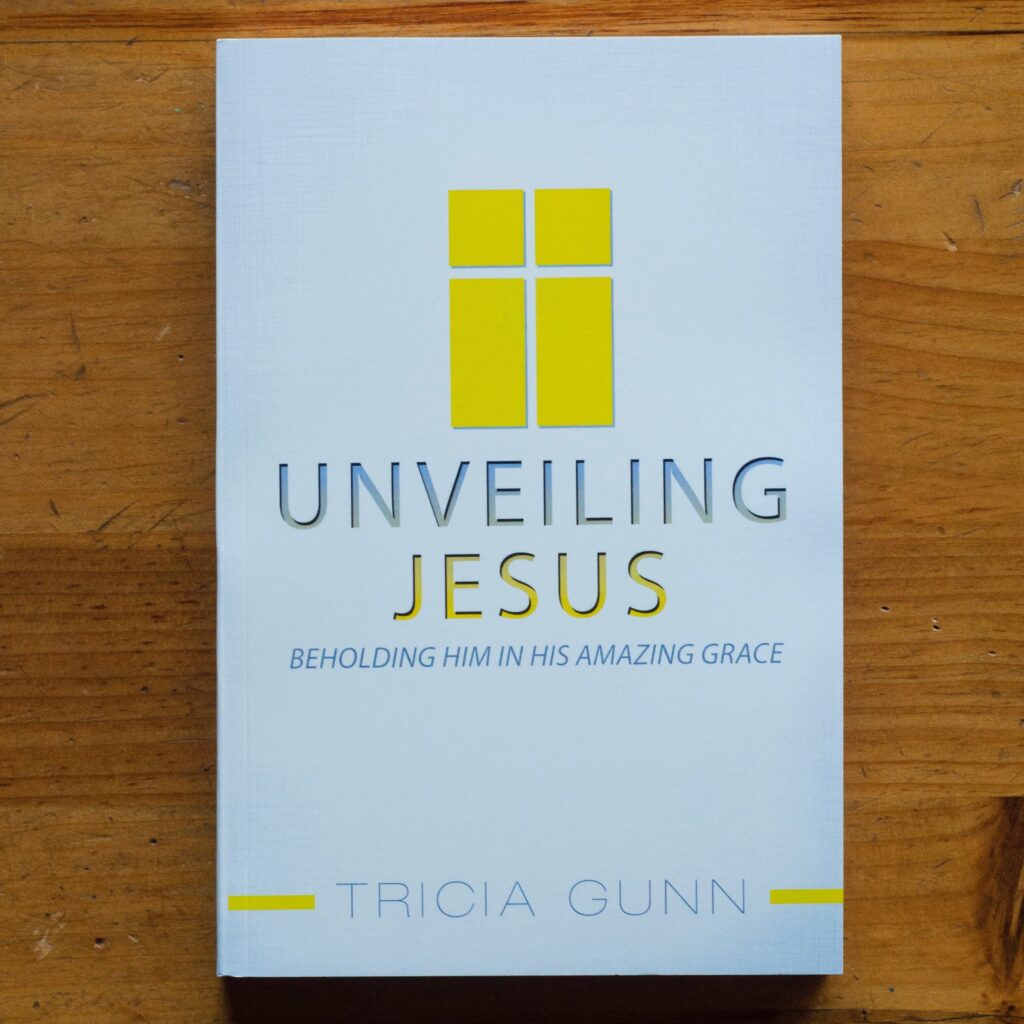
Unveiling Jesus Book
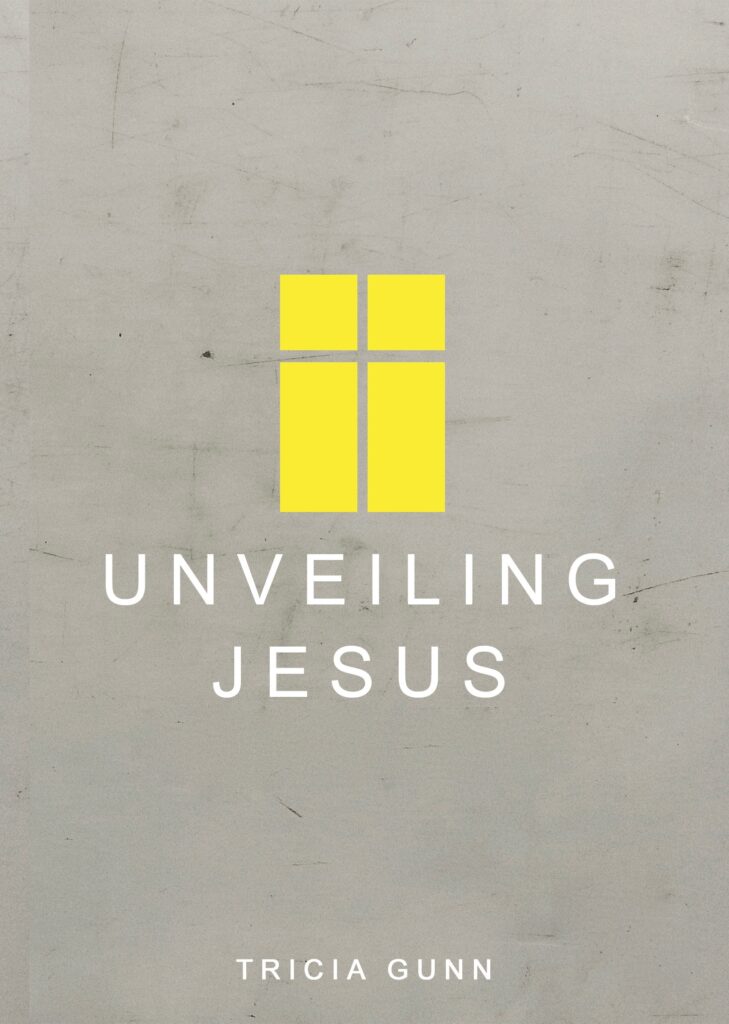
Unveiling Jesus 20-Part Series
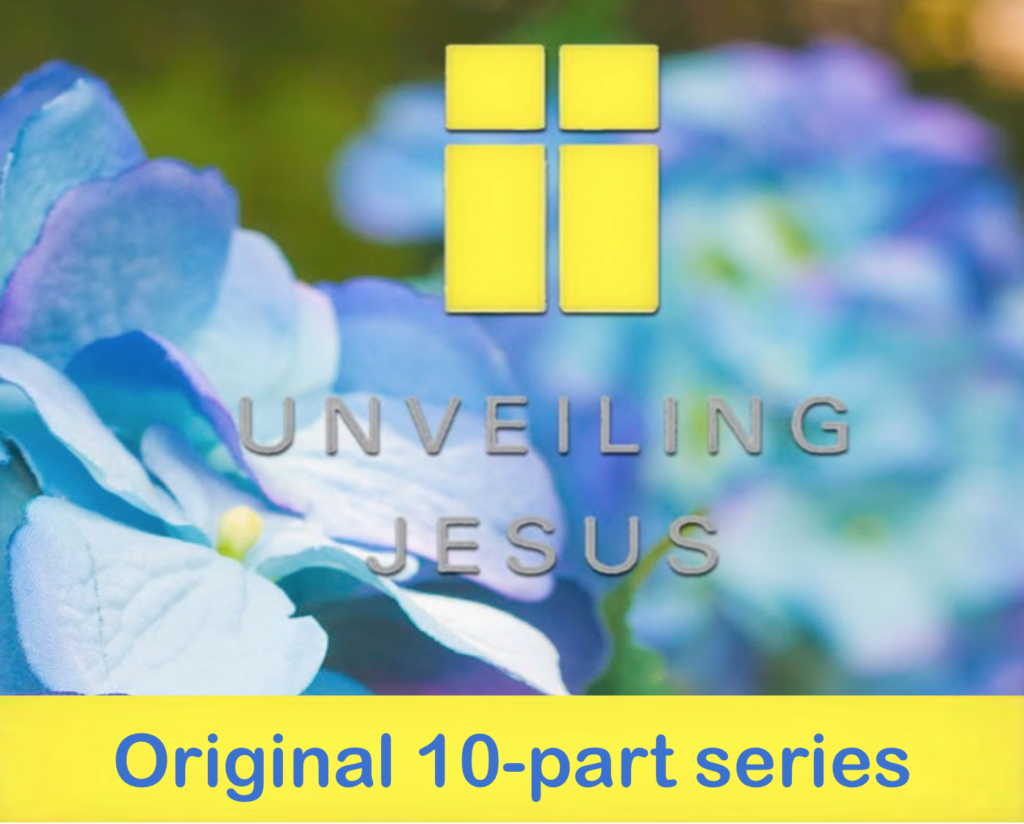
Original Unveiling Jesus, 10-part series
1From the time that Cain and Abel made the first sacrifice to God, Jews, including Noah and Abraham, made animal sacrifices to God in many places. When the Jews received the Ten Commandments on Mount Sinai, one of the new laws stipulated that Jews were no longer allowed to bring sacrifices to God just anywhere. They had to be made in the place where God’s presence was (See Deuteronomy 12:13-14). In the desert, it was in the Tabernacle. Once King Solomon completed and dedicated in the Temple, animal sacrifices were offered only in the Temple. It would be a sin to offer sacrifices in any other place. Once the Temple was destroyed in 70 AD by the Romans Emperor Nero, no more animal sacrifices were offered. However, the book of Hebrews was written before Jerusalem’s destruction.
2All scripture quotations, unless otherwise indicated, are taken from the Holy Bible, New King James Version. Scripture taken from the New King James Version®. Copyright © 1982 by Thomas Nelson. Used by permission.

